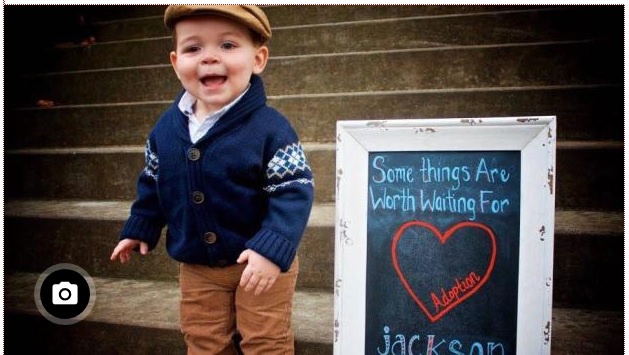Gotcha Day! An Adoption Celebration
Recently I heard about the yearly way people celebrate the day a child came into their lives. It’s called Gotcha Day! An Adoption Celebration. Wow! I had no idea this was a thing. I’m a big fan of adoption which definitely came from my family.
A quote from my mom, “There are many children who need parents; and twice as many empty, open arms wanting to hold them.”
Whether Gotcha Day or Adoption Day, it’s wonderful that every year a child is reminded how much they are wanted.
Controversial? How is That Possible?
You know me; I see something and want to know more. After I searched, I found a bunch of articles on how to celebrate the Adoption Day and several on why it’s a bad idea.
Hmmm … What’s the Right Answer?
Before I share the details, here is my take. It depends on the child and the family whether to celebrate it or not.
Here’s the Pros
It reminds a child how much they are wanted. This is especially helpful when a child comes from another country and blends into a family with biological children too.
Celebrations run from cards, cakes, family pictures, gifts, looking at family pictures from the first day they came together as a family, doing a family craft or project, and even volunteering. Pinterest has hundreds of boards on the subject. Some celebrations are big and others are intimate to the family.
One of the consistent thing adoptive children are told, that biological children aren’t, is … “they are special and chosen.”
I’m sure most of the adoptive children say to themselves, “good choice.”
And, children over ten, who are adopted, love this celebration more than younger ones. In most instances, they have wanted a stable and permanent family for a long time. This celebration gives them comfort and security.
Again, my personal bias, is to never call a child your adoptive child. Once you are on the track to adopt, the child is your child. No additional adjectives are necessary. That doesn’t mean there aren’t some nuances that you need to address.
Parents of adoptive children worry about their health and welfare and making their lives full of love, fun, activity and successes. They also worry about how to maintain an identity that relates to their country of origin and/or find good things to say about their biological family.
This helps the child feel they come from a place where someone made a sacrifice or choice to give them a better life.
Kid’s Have Questions
Even if your child is told from the beginning they were adopted and wanted, at some point, the child will have questions about their past.
My research showed there are several key points in life this happens. They are: when the children are teens searching for their individualism; when they are ready to have children; when they have a severe challenge with their family; and, when they are older and their adoptive parents pass.
One family I know, did an amazing thing. They have children who were adopted from China as infants. So when they were tweens, they took them on a trip to China. Before they left, the family planned which cities they would visit. One daughter wanted to see the orphanage she was from. The other daughter wanted to experience the culture.
So these parents preempted their children’s questions. They gave them the gift of experience and choice. Remarkably, the children said, they felt it bonded them even more to their family than made they feel the need to know more about their biological parents or families.
Another take comes from a different direction. I know one child who loved hearing over and over about the day she joined her family. Part of that story involved how her caregiver cried and didn’t want to let her go.
The US Statistics – from childtrends.org
Overall, adopted children in the U.S. fare about as well as children in the general population. About two percent of the U.S. child population is adopted, either from foster care or through private domestic or international adoption.
In the U. S. today there are 1.8 million children who have been adopted, though they are a small proportion of all U.S. children.
 They are also less likely to live below the poverty level (12 and 18 percent, respectively), and more likely to live in families with incomes more than four times the poverty level (37 and 30 percent, respectively); in other income categories the two groups of children are similarly distributed.
They are also less likely to live below the poverty level (12 and 18 percent, respectively), and more likely to live in families with incomes more than four times the poverty level (37 and 30 percent, respectively); in other income categories the two groups of children are similarly distributed.
Most adopted children are in families that provide experiences that, according to developmental research, are important for child well-being. In some instances, adopted children fare better in this regard than children in the general population. For example, young adopted children (ages 0-5) are more likely to be read to every day (68 versus 48 percent), to be sung or told stories to every day (73 versus 59 percent), and to eat meals with their families six or more days per week (56 versus 52 percent). Older adopted children (ages 6-17) are more likely than older children in general to participate in organized activities outside of school (85 and 81 percent, respectively).
In this country, children come into adoption through one of three primary routes. As of 2007, one-quarter (25 percent) were adopted from other countries, typically with the assistance of a private adoption agency. Thirty-seven percent were adopted from foster care, and 38 percent were adopted privately–i.e., without the involvement of a public child welfare agency.
The Cons of Gotcha Day – Please Remember I Love Adoption
(oh I’m not giving names or sources here, because I do not want to give them a forum for their negativity)
One of the articles shares the story of a female author who writes books on international adoptions. She doesn’t celebrate Adoption Day because of how traumatic the day was to her child when they took her, as an infant, from her international home.
Hmmm … Was it traumatic for the child? Or the parents?
This same author writes that adoption is affiliated with loss and abandonment.
I must hmmm again. If the event is joyous and the child feels wanted, the other part sounds like this woman is focusing on the negative. Sure you have to ensure the child’s feeling of comfort and security, but giving too much emphasis on the sad situation that made the child available is kinda, well, unkind.
Another person wrote, “the word “Gotcha” is deeply insulting, especially in light of unethical international adoption agencies. No matter how pure your dreams of being a parent are, she feels, “a child just isn’t something to be gotten like a car or a computer.”
Another hmmm moment. I’m not overly versed on the topic of unethical adoption, but a quick search leads you to the point that people pay for a mother to give them their child once born.
They consider it monetizing the adoption process. From what I understand about international adoptions, they run about $10,000+ to go through the process. Surrogacy isn’t looked poorly upon. Surrogacy can cost hundreds of thousands of dollars.
So why is paying medical expenses, food and housing for someone who is going to put their child into the adoption process anyway, wrong?
It’s my understanding that, depending what state you’re in, the biological mother has a number of days or months to change her mind. Talk about risk for the adoptive family. Yikes!
A Story of Risk
This happened to one of my former neighbors. They interviewed several birth mothers; and the birth mothers also interviewed them. After sharing family photo albums and how they plan to care for the child, they found a match.
When the magic day came, they went to the hospital for the birth of their child. They took her home. Bonded with her; and introduced her to her new family and friends in our neighborhood. Then, after three days, the biological mother changed her mind and wanted the child back. My neighbors’ shock, sadness and disbelief were more than words can describe.
The biological mother, through the hospital social worker, also said that she doesn’t have any clothes, crib, bedding, bottles or other essentials to care for the baby; and asked if she could have all the things my neighbors bought.
With kindness for the child in their hearts, they gave the biological mother two outfits, two blankets, bottles and diapers. However, they nicely said, we plan to have another child and we feel we’d like to keep most of our items for that child. Two years later, they did adopt a baby and were over the moon.
They also worried for years if their “almost” daughter was safe and well cared for.
Gotcha Day! An Adoption Celebration
Call it anything you like. As long as the child feels part of a family, important, welcome, love and care, the likelihood of it being negative is low.
So give all your children an extra squeeze tonight. As The Beatles sing, “Love is All you Need.”
If you’d like to share your story with us, please give us a shout.
BTW – November is National Adoption Month

